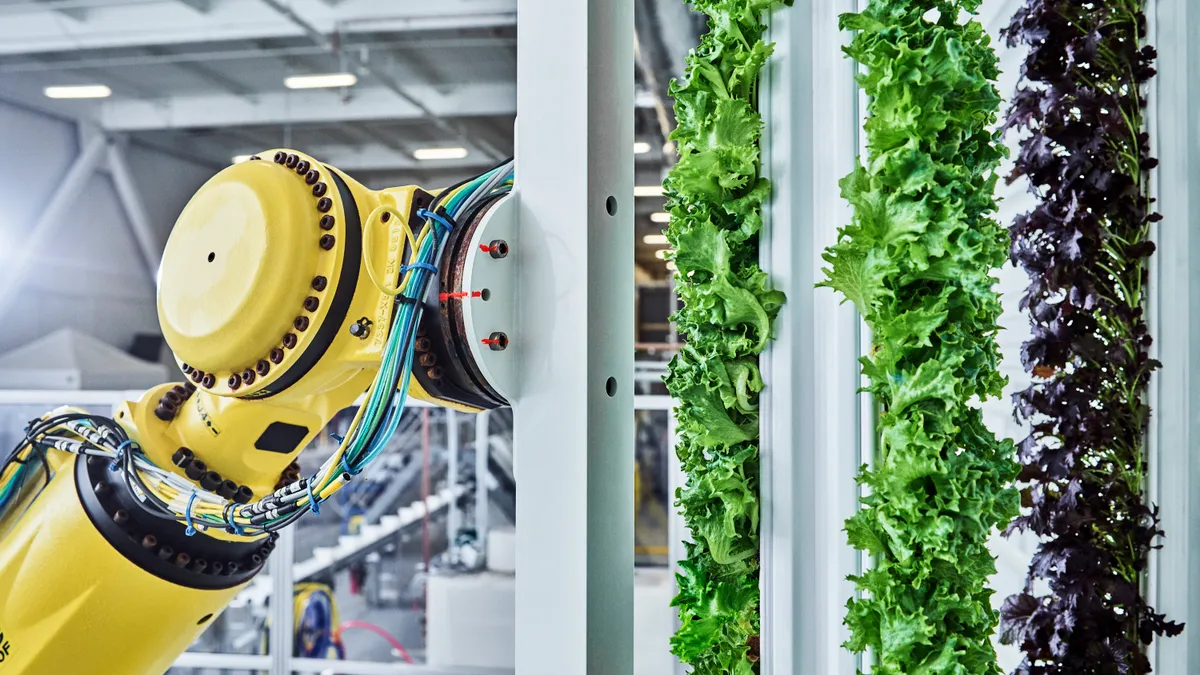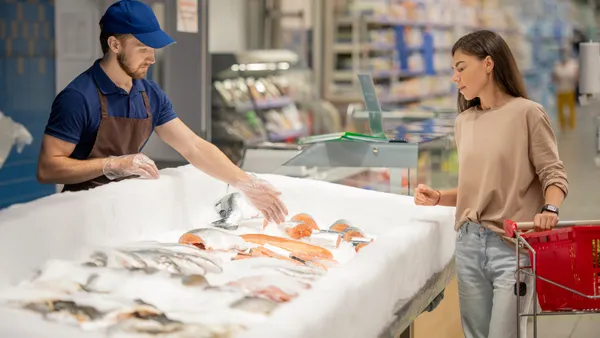Dive Brief:
- Walmart announced on Tuesday that it has agreed to invest in vertical farming company Plenty as part of that company’s $400 million Series E funding round.
- The companies will work to bring vertically farmed produce to Walmart stores, including all of its California locations. Walmart will join Plenty’s board of directors as part of the investment, according to the news release.
- Walmart said it plans to create a “new, market leading product category” in vertically farmed produce that’s available to shoppers year-round.
Dive Insight:
With its investment and long-term commercial agreement with Plenty, Walmart is linking up with a burgeoning food-tech movement and paving the way for regionally sourced produce year-round in its stores.
The sourcing partnership will start out in California, where Plenty’s soon-to-open 95,000-square-foot indoor farm in Compton will begin supplying leafy greens to Walmart stores throughout the state later this year. The companies didn’t outline additional markets, though the news release indicated availability at Walmart stores will expand as Plenty builds more vertical farms.
Plenty, which is headquartered in South San Francisco, currently operates a vertical farm in that city, and an indoor plant science research facility in Laramie, Wyoming.
Retailers, including Walmart, have sourced leafy greens from indoor farms for years. But advancing technology in the space is lowering costs, improving quality and advancing the possibility that vertical farming outfits could scale across the country. Plenty, which “has ‘cracked the code’ on the technology and economics of indoor farming,” according to one investor, has attracted retail attention of late. In 2020, it signed up with Albertsons to source leafy greens throughout California and has also supplied local Whole Foods Market locations and independent markets in the San Francisco area.
According to Tuesday’s announcement, Plenty utilizes proprietary technology and software to grow multiple crops per platform using a fraction of the water and land acreage that traditional agriculture utilizes. The company said its crop yields are 150 to 350 times higher per acre than conventional agriculture and that it uses just 1% the amount of land.
Vertical farming operators are vying for investors’ attention in the increasingly competitive industry. Last year, Bowery Farming brought in $300 million while Manhattan-based startup Oishii scooped up $50 million to grow strawberries. Earlier this month, Brooklyn-based Upward Farms announced plans to build what it claims will be the world's largest vertical farm, a 250,000-square-foot facility in Pennsylvania.
Last week, Plenty announced agritech veteran Arama Kukutai as its new CEO, noting he will help the firm become a scalable business.













